The King Of Cannes Mario Kassar On The Glory Days Of Carolco, Why Buying Arnie A Plane Made Sense And Talking Vaginas

EXCLUSIVE– Few names conjure up the magic and market of Cannes as much as Mario Kassar and Carolco Pictures. Along with partner Andrew G. Vajna, Kassar helped to disrupt the independent film business, with Carolco enjoying a more-than decade long run that saw the likes of First Blood, Terminator 2, Basic Instinct and Cliffhanger all made outside the studio system. Before Lionsgate, before Summit, before EuropaCorp, there was Carolco, and Kassar was at the heart of it all. The Lebanese-born producer, who started as a teenager in Italy selling films before moving to LA, transformed the kind of business one could do in Cannes.
The original King of Cannes helped hatch many of his biggest deals on the Croisette. He created a business model bringing together foreign buyers, an output deal for domestic with Tristar and the financing muscle that taking Carolco public afforded him. It helped set the template for today’s mini-majors. Far from simply recreating the disposable straight-to-video fare of the likes of Cannon Films on a bigger budget, Kassar and Vajna were true cineastes, empowering their directors’ creative vision and creating new templates for stars’ remuneration.
Although the company ended in bankruptcy, it is that glorious run between 1982-1993, bookended neatly by Stallone’s First Blood and Cliffhanger, that continues to give independents hope.
DEADLINE: Cannes has had such an important impact on your career. What does the festival mean to you?
KASSAR: Cannes was where I started. That was the place where, in the days of Carolco, we were like the kings of the festival. The distributors were pouring in to buy, or to screen some footage or promos. And, of course, there were the parties.
One particular party we did I don’t think has ever been repeated in Cannes. I flew in on a private jet—it may even have been a 747—and I brought every actor and director I ever worked with. Adrian Lyne, Alan Parker, Oliver Stone. That was amazing. When we landed in Cannes, we had 20 or 30 black Mercedes with the lights on top like the cops. I had the cops, the press, I had everybody, and then I took everybody to the Hotel du Cap where they all had their own suites and rooms. It was like a worldwide event. All the world’s press was there. The biggest problem I had at the party was agreeing who between Sylvester Stallone and Arnold Schwarzenegger was going to walk in at the end. In the end, they came in together and everybody went crazy. That party cost $1 million about 20 years ago. Everybody was dancing and drinking and eating like crazy on the terrace of the Hotel du Cap. It was unbelievable.
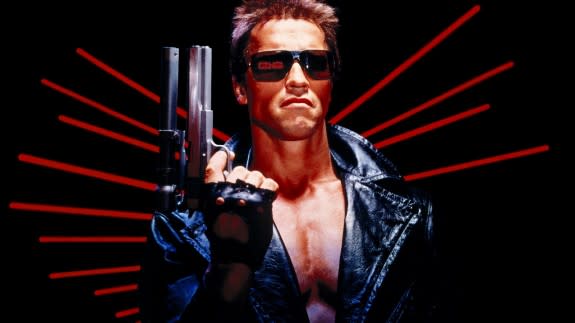
DEADLINE:
Carolco took the studios head on with mega-budget independent films like Terminator 2. What do you make now of the likes of Netflix?
KASSAR: I think it’s a normal thing. The studios now, either they do sequels and they have maybe one hit in the year and when they lose money, they lose a lot of money. A lot of the actors are going to where the new business is now, which is content that is being viewed on mobile devices, computers, iPads etc. For a few dollars a month you pay for Netflix, you can see the original Netflix movies, House of Cards or movies that were done six months ago. If you don’t have cable or you are on your iPad sitting somewhere, you can watch it. It’s the future. It is replacing VHS, which became DVD, and now it’s streaming. And now streaming is it’s own releasing system. I must give credit to those guys; they are the major disruptor of the new release pattern of movies.
Actually many, many years ago I met with John Malone and I wanted to do one of the Rambos and have it released on one of his cable channels first for a lot of money. I was gonna go cable and then theatrical. I was going to do that experiment before anyone thought about it. It was going to be an amazing first week or two on cable as the biggest trailer in the world, for a lot of money upfront.
Netflix is now attracting actors like Brad Pitt and all those people to make their pet projects, or smaller ideas and do in-house production, because they need product and don’t want to pay the studio millions of dollars. They would rather do their own which they own 100%. It makes sense.
DEADLINE: When you first launched Carolco with Andy, did you have any idea what it would grow into?
KASSAR: It never occurred to me we would become what we became. Really, Carolco started as a foreign sales company. At the time in the 1970s, you had independent companies like Crown International, who were producing some low budget American or Canadian tax shelter movies and they had no idea about foreign rights. I came from foreign. I knew all those territories. I knew their values. So I said , “Ok, that is a business I can be in.”
We were doing great for the producers, earning a good sales commission. We used to make great posters, glossy press kits and promos I had learned about in Italy and we would go to festivals and we would sell them. People started to know who we were. We sold every territory at great prices, which was fine but we did not control the product. Most of the films were pretty bad. The problem was that when you are selling movies from other producers, you do your best to try and get the best price from every country but the distributors end up blaming you as the middleman if the film doesn’t work. At the end we were tired of being blamed. I did a good job selling the film but if all the blame is going to end up on my head, I might as well produce my own movie and control my own destiny.
There was a small movie we had called Chatterbox. We made an amazing poster. We took the film to MIFED. We barely had a desk and no phone in some corner of the market somewhere. We managed to attract all the distributors to one screening only by invitation. The room could take 25 people max and we invited 100 people fighting to get in. I don’t think anyone saw more than 10 minutes but we sold the whole world outside of the US in an hour. The film was about a girl who discovers she had a talking vagina. I’m serious.
DEADLINE: How did the partnership start with Andy?
KASSAR: Andy would buy films from Italy for Hong Kong where he had a company there called Panasia. He needed the big movies but he didn’t know many people. I told him if he signed an exclusive deal with me I would get take him to all the big Italian companies. He did and I got us the biggest titles. We had a film called The Sicilian Cross with Roger Moore. It was an
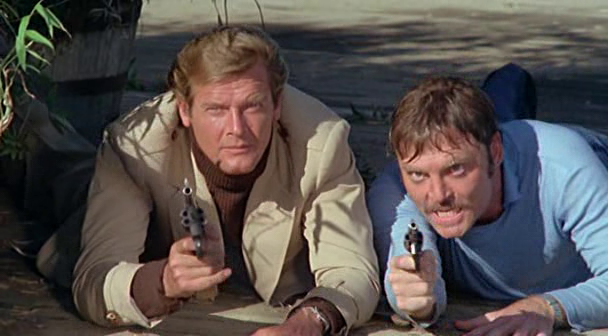
Italian film and Italian director but they shot one week in San Francisco to make it look like an American film. Andy and I bought it for $100K or something. We went to Hong Kong and sold it for $250K in two days. That’s how we started Carolco.
DEADLINE: First Blood was the real game-changer for Carolco that took you from a sales company to a production company. How did that come about?
KASSAR: A good friend of ours gave us a book to read called First Blood. It was amazing. In those days, the studios were selling properties that were on their shelf to get back all the wasted money they had spent on different writers for different stars with nothing happening to those projects over the years. We contacted a business affairs person at Warner Bros. called Jack Freedman. Of course, they calculated the numbers and asked for the whole thing with the 13 different screenplays they’d written for Dustin Hoffman, Paul Newman, Harrison Ford et cetera. I called my banker and told him I was writing this big check and had acquired all the rights. When I had arrived in LA I had met a few people, one of whom was a big attorney called Jake Bloom, and his partner Tom Pollock, who were also good friends to some stars. After much discussion, we all agreed the only person who could play the part was Sly Stallone. Jake was his lawyer. Then we met Ron Meyer, who was at CAA at the time, and was always a gentleman. And there was Sly’s business manager Herb Nanas. After some negotiations, and the usual Hollywood runaround, we agreed to a deal. Of course, we overpaid him, but you have to remember we were the new kids on the block and this was like an initiation fee that had to be paid. Then we made a deal with Ted Kotcheff.
After First Blood became a big hit we became a public company and one thing followed the other. I always followed my passion and my taste in movies. I never cut corners and always made sure we delivered what we promised. I don’t believe you can cheat the distributor. In those days they had a kind of trust. There was no Internet. Now when the movie is shooting you hear about every problem going on. Before, they didn’t even read screenplays!
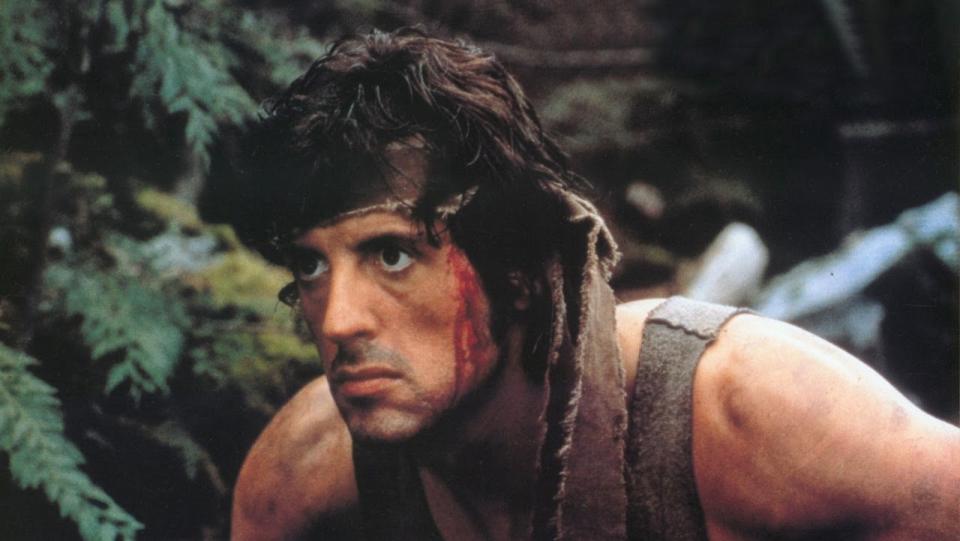
DEADLINE:
What went wrong?
KASSAR: Like everything in life when you are growing and get to the biggest point and you reach the top of the mountain, there is only one way to go. If you are very smart you get out or you try to stay on the top of the mountain, but most of the time there is always something that happens. Unfortunately a lot of bad things happened and started going down. Slowly Carolco ended up. Finished, done, finito. Everybody knows that story.
DEADLINE: Anything you would have done differently?
KASSAR: It is easy for me to look at it now, but back then I was doing four jobs at the same time. I was being very creative, producing, pre-selling, marketing, I was doing all these things. I needed other people to run the company, to be the accountant, to be the lawyer. I couldn’t do all those things. Unfortunately I realized you have to kind of do both. No matter what I was doing on the film side where we were making money, I had people working with me either acquiring companies or investing in things that didn’t do well. Everybody makes mistakes in life. I’m not blaming anyone because I can only blame myself. If I didn’t say “yes” nothing would have ever happened. So some mistakes were made because when you are in a big cyclone of good stuff going on, sometimes you miss some marks or don’t see things the way you are supposed to see.
DEADLINE: There are urban legends about the kind of deals you used to put together, like paying Arnold with a private jet for Terminator 2. Are any of those stories true?
KASSAR: Arnold did get the plane. That was a gimmick, but it was true. A big star like Arnold would get paid his huge fee weekly guaranteed, but with a plane we could pay it off over many years and amortize the cost, so it actually worked out for us financially and also was a major marketing coup.
DEADLINE: What was the most complex or imaginative deal you did?
KASSAR: Every movie we made was complicated because they were all financed independently. There was no studio giving us a big check. It was our money, pre-sales and discounting. It was very complex but I’d probably say the deal for Terminator 2 was the most difficult to put together. James Cameron only had 50% of his rights. He had given the other 50% for a dollar as part of the divorce to his ex-wife Gale Anne Hurd. I went to meet John Daly at a company called Hemdale. They had made the first Terminator with Orion. I had met Cameron before they made the first one. He’d come to me and said I’d like to do this with you guys but I’m stuck with Orion and Hemdale. I told him it if anything happens to come to us and we would finance him in a minute but it didn’t happen. I went to the premiere, saw his movie, I said, “My God, you are so talented. You come with a fucking phonebook, I’ll do it.”
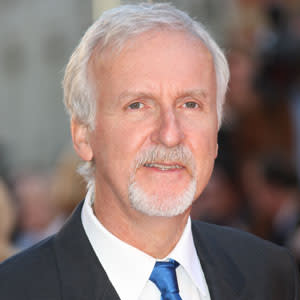
Anyway one day I got a call from Arnold and his agent saying, “Well, everybody has been trying to do Terminator 2, nobody is succeeding, maybe you can. Can you try?” I said, “Of course I will try. What are the problems?” Arnold was ready to do it, Cameron was ready to do it, but half of the rights were with Hemdale and the other half were with his ex-wife. Nobody could put it together. So I had a meeting with Hemdale and asked if they would sell their half of the rights. John Daly looked at me and said, “Yeah, if you give me $10 million.” He threw a number in the air to scare me off or find out whether I was joking, whatever. I was sitting there, with my lawyers and all my people and I told him, “OK, you have a deal.” Of course, when he heard that, he got buyer’s remorse and starting thinking, “Shit, I could have got more.”
That is how I got 50% of the rights of Terminator 2. Now I needed to go get the other half. So Gale Anne Hurd’s agent asked for $5 million. I said, “Fuck, but OK.” So I’m at $15 million now, but I have the rights. Then there was something else to resolve, and I had to go back for another million or something. So the rights ended up costing $16 or $17 million. The numbers were growing and growing.
James wanted to do all the effects and show them to me before we made the movie. All the chrome, the morphing, the wonderful things of Terminator 2. That was like a $17 million bill just for the effects you see. I said, “Absolutely, go for it.” I was making the movie, and no one was stopping me. It was all over the news. The movie that was going to bankrupt Carolco. The most expensive independent movie of all time. Everyone from Larry King to CNN; everyone was destroying the whole thing. I was on the boat in Cannes listening to all the nonsense. Then, of course, the movie opens, and like they say, every success has many fathers. Everyone suddenly became like they knew it was going to be a big hit. They forgot all the bad and terrible things they were saying about Carolco. There were so many fluid, moving elements and it was so expensive for those days but I went for it and it paid off.
DEADLINE: You were basically making studio films—Terminator 2
had a $102 million budget back in 1991—in the independent sector. How did you manage to make such expensive films so regularly? What was the secret to your business model?
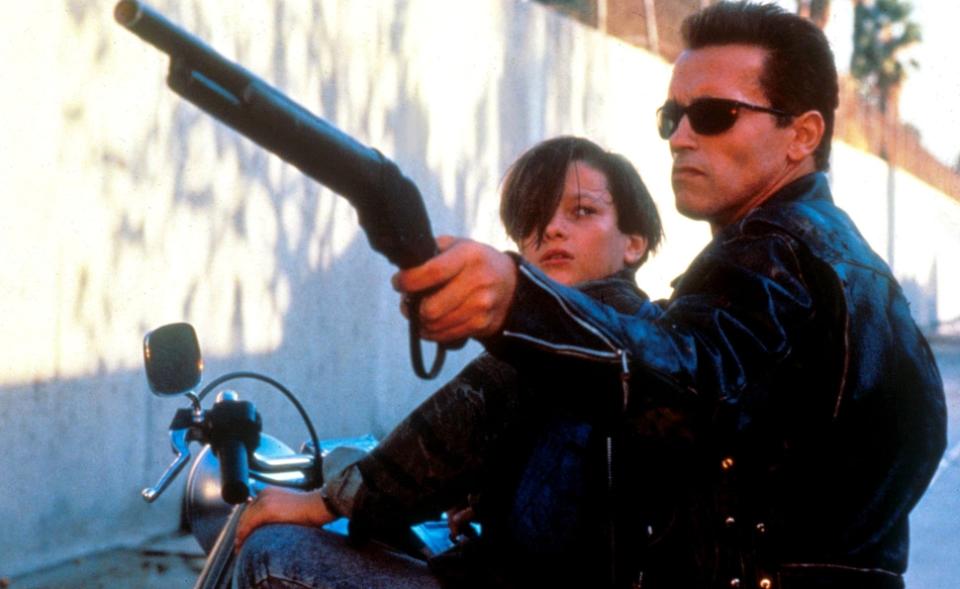
KASSAR: When we went public, we had an output deal with Tristar for domestic for a percentage of the budget, no matter who was in it. The business was absolutely different back then. First of all, the networks used to pre-buy. Then there was VHS. Also, there was Canadian tax money that helped, and we raised a few dollars from going public. Although, I never liked being public because aside from having access to the funds, you spent your days reading legal papers or signing documents and you got lost in the Wall Street kind of business. It basically took a lot of your creativity away. Now, of course, you would hire people to help you with that, but at the end of the day you’re still supposed to know what’s going on and regulations, conditions et cetera.
So we had domestic in place. We would secure the foreign sales and discounting. I would run the number for foreign, and all I had to do really was deliver my foreign sales which I was very good at. The business has changed a lot since then, but at the time, we could get up to $10 million,—sometimes even more—from Japan for one movie.
Our films were all expensive because we never cut corners. We got the stars. Andy and I were the foreign guys who would pay and do the big ones that studios were scared to do because, you know, studios like to run numbers. If you run numbers through the computer you never make a movie in your life, because you never make any money unless the film is a fucking Jurassic Park. So I would only run the numbers for foreign; I knew what I was getting for the US through the Tristar deal, I had my video company giving me another output. I was sometimes at 110% above the budget before I started shooting, so I had no problem with the numbers, but when we go over-budget as an independent company, everybody makes a big deal out of it. You never know when a studio goes over-budget because they hide all of the numbers. They would always tell you it cost $90 million. In reality you don’t know if it’s $100 million or $200 million or God knows what.
We were the only ones making big studio movies independently and for the foreign distributors this was heaven. They could not
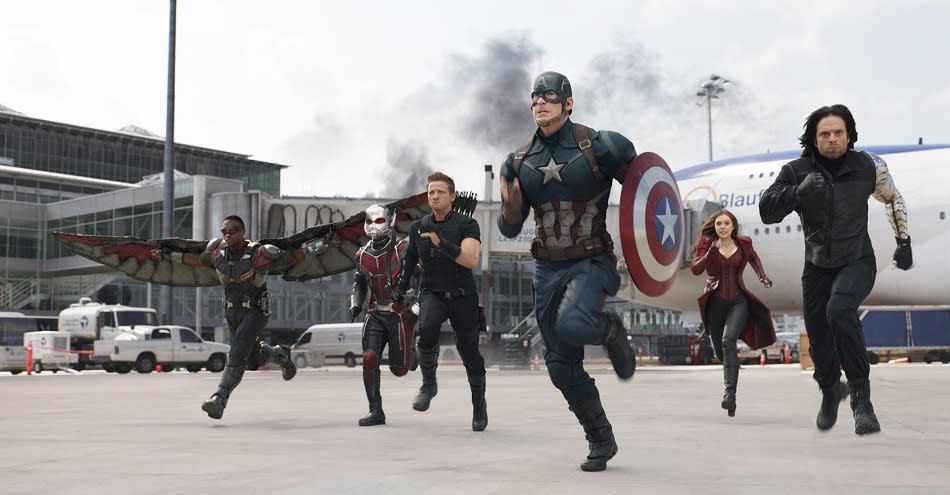
get those movies otherwise. Now the problem is, because of Marvel, every big name—people like Robert Downey Jr, who I worked with—has deals for the next five, six years and is tied up to the studios.
DEADLINE: The year after T2, you had a huge controversy with Basic Instinct. It’s an iconic movie now but at the time it was as if no movie had ever been this evil and wicked.
KASSAR: It was a unique situation. I get a call at 7:30 in the morning from a guy at ICM called Guy McElwaine, who was a great guy but has sadly passed away. He says he’s sending me a script and asks me to read it. I can have it for $250,000. I called back at 9am and said, “This is unbelievable, I need to buy this immediately.” He told me he was on the way to the airport to go to Hawaii and needed to speak to ICM chairman Jeff Berg, who was repping the writer Joe Eszterhas then. At 5:45 that evening I get a call from Jeff. I asked him, “What the fuck is going on? You guys wake me up at 7 in the morning for $250,000. I give you an answer to tell you okay in an hour, and now you keep me waiting all day.” Of course they had used my name to keep on going from one studio to another. It was like rollerball, and it started growing and growing for no reason, just because I wanted it. All he said was, “Look, there is an offer for $2.75 million, what do you want to do? Your ex-partner wants it.” The funny thing was that Andy, who had now formed C2 Pictures, had made the last bid. I asked Jeff, “I started at $250,000. How did we get here?” I told him he’d done a great job rattling everybody to get the maximum he could and that my ex-partner was not going to get it because I’d started this whole thing and I wasn’t going to blow it for $250,000. So, I told Jeff, I’m tired, what is it going to take to close this. He said, “Mario, for $3 million it’s yours and the rest is history.” And I closed the deal.
Everyone was very nervous about the movie because no one knew what it would be. I wasn’t an idiot and I felt that, which is why I paid $3 million. I knew and believed it was something really special. I was only one of a few. Even people in my office did not believe it. Anyway we did a quiet screening, people came and looked at it, and they were kind of silent after. They didn’t know what to say. Then the movie opened at $15 million and kept going on $15 million for so many weeks. It had been the highest paid spec screenplay with no stars or director attached. For weeks and months they destroyed me in the trades. Then by the second weekend of release, they all started trying to copy it.
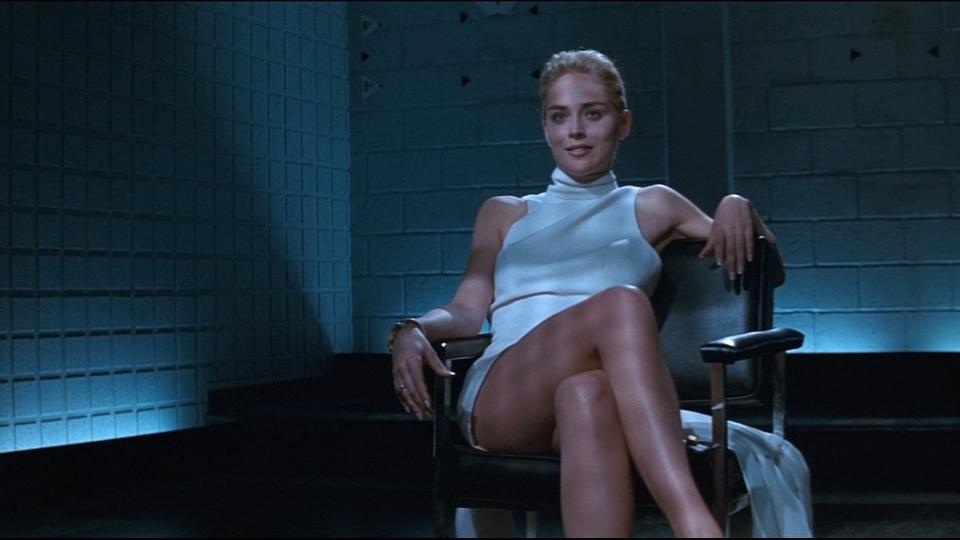
DEADLINE:
Why do you think you were able to get the top stars like Sylvester Stallone and Arnold Schwarzenegger? The studios could have paid the money too.
KASSAR: But the studios were never doing what we were doing. Those actors were never treated by the studios the way we treated them. They are like big babies. They want to fly private jets. The list of perks, I don’t have to tell you; it was three pages from bodyguards to special food, butler, special house… whatever. With the contracts they got more money than with the studio, and a perk list that the studio probably wouldn’t give. Now, after us, the studios gave them everything they wanted and more, but we started that. We treated them royally. We paid them royally. We knew what they meant for foreign and we travelled them around the world to promote the movie. Sly and Arnie were the two big action stars that everyone wanted to see in the ’80s. It was perfect. The other thing is with the deals we made with them, when they made a deal with the studio they had a gross participation. Because we were making the movie independently, our participation was different than the studio so we could live with it. We didn’t mind paying a bit more with the money and the perks because at the end of the day it all worked perfectly with everybody.
DEADLINE: What are your plans now?
KASSAR: I’m working on two or three movies now. I’m doing a small film in Asia with the team from this great Indonesian film called The Raid. We have the actor from that film and I was asked to come and produce it. It’s called Foxtrot Six and it’s like a mini Expendables. Also, I bought the rights to a Japanese cult movie called Audition. I’m almost there. It’s taking me a long time because it is kind of hard to do this movie but I’m not going to do it unless I know I’m doing it right. And I have something called Bot, written by Tedi Sarafian, who wrote Terminator 3. I’m not thinking too far ahead.
Related stories
James Gray To Write And Direct Sci-Fi Pic 'Ad Astra' - Cannes
All-Star Cast Boards Armando Iannucci's 'The Death Of Stalin' - Cannes
Get more from Deadline.com: Follow us on Twitter, Facebook, Newsletter

